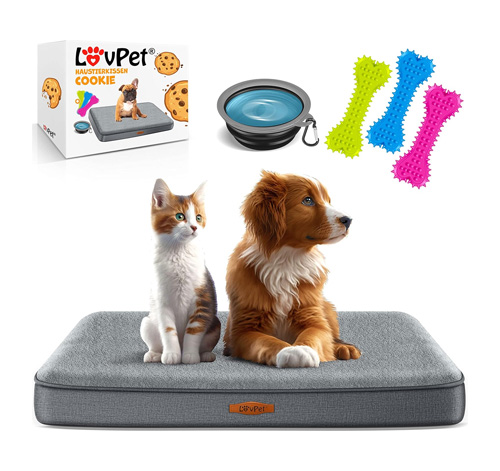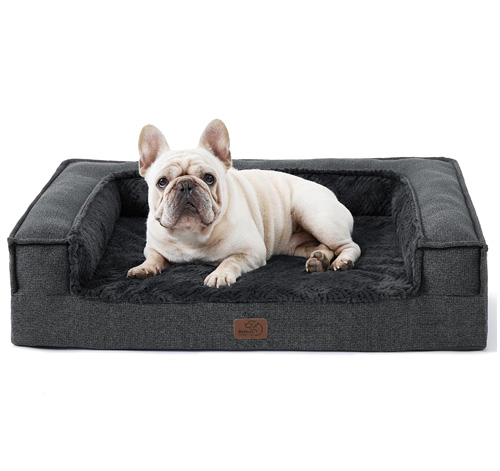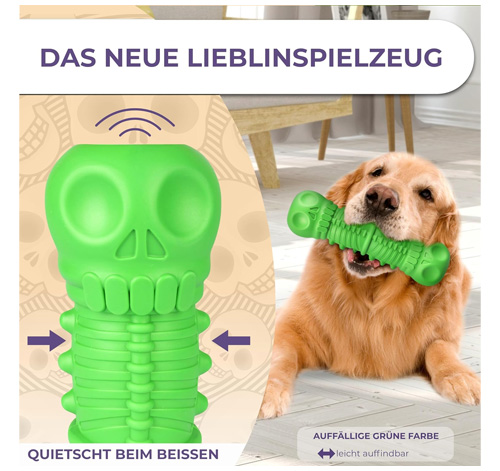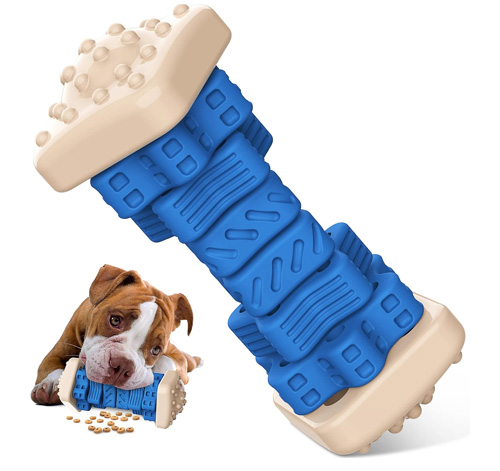In recent years, a remarkable trend has developed in the world of work: More and more companies are allowing their employees to bring their four-legged friends to the office. This development raises many questions: What are the implications of having dogs in the workplace? Is it really a good idea to bring your beloved Frenchie to the office? In this in-depth article, we’ll look at the pros and cons of dogs in the workplace and help you make an informed decision. French Bulldogs in the office: should you bring your Frenchie to work? – Advantages and challenges
Imagine coming into the office in the morning and being greeted by a friendly wag and a gentle snort. Your Frenchie is lying comfortably in his basket next to your desk while you get to work. Does that sound like a dream or more of a potential challenge? Let’s explore together what it means to bring dogs to work and what factors you should consider.
The legal situation: Am I even allowed to bring my dog with me?
Before you bring your faithful companion to the office, it is important to know the legal framework. In Germany, there is no clear legal regulation that allows or prohibits bringing dogs to work. The decision is ultimately up to the employer.
Employer authorization is mandatory
To take your four-legged friend into the office with you, you always need the express permission of your employer. This permission can be granted in various forms:
- As a clause in the employment contract
- As a separate written agreement
- As a verbal commitment (written confirmation is recommended)
The principle of equal treatment
Interestingly, the principle of equal treatment can work in your favor in some cases. If other colleagues are already allowed to bring their dogs with them, this could strengthen your position. However, it should be noted that not all dogs have to be treated equally. A small, calm Chihuahua may be more acceptable than a large, energetic German shepherd.

Revocation of the permit
It is important to know that permission to bring your dog can be revoked under certain circumstances. Reasons for this could be:
- Complaints from colleagues or customers
- Hygiene concerns
- Aggressive behavior of the dog
- Allergic reactions from employees
Insurance and liability: What happens in the event of damage?
French Bulldogs in the office: Should you take your Frenchie to work? An often overlooked aspect of dogs in the workplace is the question of liability. What happens if your Frenchie accidentally nibbles on the expensive office chair or even bites a colleague?
Dog liability insurance: a must
As a responsible dog owner, you should have taken out dog liability insurance anyway. This usually also covers damage caused by your dog at work. It is advisable to clarify with your insurance company whether the cover also applies to the workplace.
Public liability of the employer
Your employer should also check whether their public liability insurance covers damage caused by dogs in the workplace. A clear regulation in the written agreement on taking dogs with you can save a lot of trouble here.
Personal injury: a complex issue
Things get more complicated in the case of personal injury. Depending on whether the incident occurs during working hours or during a break, different insurance policies may apply. If in doubt, it is always advisable to report the incident to both statutory accident insurance and dog liability insurance.
Shop cozy Frenchie beds
The benefits of dogs in the office: More than just cute faces – French Bulldogs in the office: Should you take your Frenchie to work?
The presence of dogs in the workplace can have amazing positive effects. Let’s take a closer look at some of the most important benefits.
Stress reduction and improved mood
Scientific studies have shown that contact with dogs can reduce stress levels and boost mood. This happens through the release of oxytocin, also known as the “cuddle hormone”. Eye contact with a dog alone can trigger this effect.
Promoting communication and team building
Dogs in the office can act as “social catalysts”. They offer something to talk about and can break down barriers between colleagues. This can lead to improved communication and greater team cohesion.

Increased exercise and health promotion
The need to walk the dog regularly encourages employees to exercise. Instead of spending their lunch break at their desk, many prefer to take the dog outside. This can have a positive effect on health and well-being.
Increased productivity and creativity
Contrary to fears that dogs can be distracting, studies show that their presence can increase productivity and creativity. Short interactions with a dog can serve as “micro-breaks” that improve concentration and performance.
The challenges: When the dog becomes a burden in the office
French Bulldogs in the office: should you take your Frenchie to work? Despite the many benefits, there are also challenges that need to be considered when deciding to bring dogs to work.
Allergies and phobias of colleagues
Not every employee will be enthusiastic about the idea of having a dog in the office. Allergies to dog hair or fears of dogs can lead to serious problems. It is important to take these concerns seriously and find solutions together.
Hygiene and cleanness
Dogs inevitably bring extra dirt and hair into the office. This can lead to increased cleaning costs and make some colleagues uncomfortable. As a dog owner, it is your responsibility to ensure that your four-legged friend is kept clean.
Distraction and loss of productivity
Even though dogs can increase productivity, there is a risk that they can become a distraction. A constantly barking or restless dog can affect the concentration of all employees.
Stress for the dog
Not every dog feels comfortable in an office environment. Loud noises, lots of people and unfamiliar surroundings can be very stressful for some dogs. It’s important to keep an eye on your dog’s well-being.
Shop Frenchie mind toys
The ideal office dog: what qualities should it have?
Not every dog is suitable as an office dog. Certain characteristics make a dog particularly suitable for the workplace.
Calm and balanced temperament
A good office dog should be calm and relaxed. He should not jump up at every noise or constantly demand attention. Breeds such as Labradors, Golden Retrievers or French Bulldogs are often well suited.
Good socialization
The dog should be friendly towards people and other dogs. Good socialization from puppyhood is crucial for this.
Basic obedience
Basic commands such as “sit”, “down” and “stay” should be safely mastered. The dog should also be able to remain calm for longer periods of time.

House-trained and good manners
It goes without saying that an office dog must be house-trained. In addition, it should not chew on furniture, bark or show other annoying behavior.
Preparation is everything: How to get your dog ready for the office – French Bulldogs in the office: Should you take your Frenchie to work?
If you have decided to take your dog to the office with you, good preparation is the key to success.
Slow acclimatization
Start with short visits to the office and slowly increase the duration. This will allow your dog to get used to the new environment.
Fixed space in the office
Set up a fixed place for your dog where he can retreat. A comfortable dog bed or box can be helpful here.
Clear rules and routines
Establish clear rules right from the start, both for your dog and for your colleagues. Determine when and where your dog is fed, when it is allowed to be walked and how much interaction is permitted.
Sufficient occupation
Make sure you have enough toys and activities to keep your dog occupied during quiet periods.
Communication is key: how to involve your colleagues
The success of an office dog depends largely on the acceptance and support of colleagues. Open and honest communication is crucial here.
Introduction of the dog
Formally introduce your dog to the team. Explain his personality, his needs and how best to handle him.
Establish a feedback culture
Encourage your colleagues to speak openly with you if there are problems or concerns. Be prepared to accept constructive criticism and make adjustments.
Establish common rules
Develop rules for dealing with the dog together with your team. This can include topics such as feeding, petting or behavior in meetings.
Respect for boundaries
Respect the fact that not every colleague is a dog lover. Accept if someone does not want contact with the dog.

Health and well-being: What your dog needs in the office – French Bulldogs in the office: should you take your Frenchie to work?
To make sure your dog stays happy and healthy in the office, there are a few important points to bear in mind.
Regular breaks and exercise
Schedule regular walks. This is not only important for your dog’s physical needs, but also provides a welcome break for you.
Sufficient water and food
Make sure your dog has access to fresh water at all times. If necessary, bring food with you, but feed your dog at fixed times if possible.
Comfortable resting place
A comfortable, quiet place where your dog can retreat is essential. This can be a blanket, a dog bed or a crate.
Health check and care
Keep your dog healthy and well-groomed. Regular worming, vaccinations and grooming are important to ensure hygiene and health in the office.
Shop Frenchie chew toys
If it doesn’t work out: alternatives to the office dog
Sometimes it turns out that bringing your dog to the office is not the ideal solution after all. In such cases, there are alternatives to explore.
Flexible working hours
Perhaps your employer can offer you flexible working hours that allow you to look after your dog at home on a regular basis.
Home Office Options
The option to work partly or completely from home can be a good alternative to staying with your dog.
Professional dog care
There are now many professional dog care services that can look after your four-legged friend during the day.
Dog-friendly workplace design
Even if dogs are not allowed directly in the office, your employer could perhaps set up a dog-friendly area outside the office.

The “Colleague Dog” campaign day: A chance to try it out – French Bulldogs in the office: Should you take your Frenchie to work?
The “Colleague Dog” campaign day launched by the German Animal Welfare Association offers a great opportunity to try out the office dog concept.
What is the “Colleague Dog” campaign day?
On June 21 of each year, dog owners can bring their four-legged friends to work on a trial basis. This allows companies and employees to test the idea of the office dog in practice.
Goals of the event
The event aims to create more acceptance for dogs in everyday working life and to break down prejudices. It offers the opportunity to gain positive experiences and identify potential challenges.
Shop cozy Frenchie beds
How can you pariticipate
To take part in the event, you need the approval of your employer and your direct colleagues. It is advisable to communicate clear rules and expectations in advance.
Evaluation and feedback
After the action day, it is important to discuss the experience as a team. Gather feedback from colleagues and your employer to decide whether long-term integration of dogs in the workplace makes sense.
Conclusion: Is your Frenchie ready for the office?
The decision to bring your dog to the office should be carefully considered. There are many potential benefits, but also challenges to consider. Ultimately, success depends on many factors: your dog’s personality, the attitude of your colleagues and the company culture.
If you decide to bring your Frenchie to the office, be prepared to invest time and energy in preparing and settling in. Communicate openly with your employer and colleagues, and be flexible if adjustments need to be made.
Remember: your dog’s well-being should always come first. If you notice that your Frenchie is stressed or unhappy in the office, be prepared to consider alternative solutions.
With the right preparation and attitude, bringing your dog to work can be an enriching experience for you, your four-legged friend and your colleagues. Who knows – maybe your Frenchie will soon become the most popular “employee” in the office!













